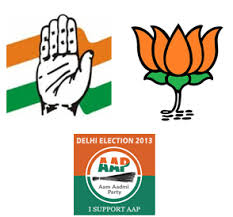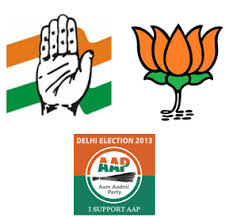 I never expected this blog post to be written because I figured I would never care enough to write about Indian politics. After having spent the last 8 years surveying the Indian political landscape, I felt it was time to pen some of my thoughts.
I never expected this blog post to be written because I figured I would never care enough to write about Indian politics. After having spent the last 8 years surveying the Indian political landscape, I felt it was time to pen some of my thoughts.
An Indian Election Primer
Elections are held every 5 years to decide who gets elected into Parliament. The Parliament consists of the Lok Sabha and Rajya Sahba, the election process will start very soon for the Lok Sabha. When a political party has a majority of the seats in the Parliament then that party selects who becomes the Prime Minister of the country.
There are two main political parties – Bharatiya Janata Party (BJP) and Indian National Congress (usually referred to as the Congress party). In addition, there are many smaller regional parties. This year out of nowhere an independent party called Aam Aadmi Party (AAP) was formed and has been gaining a lot of traction.
Historically, a single party has never had a majority in the Lok Sabha so they end up forming a coalition with smaller regional parties. The two main coalition governments are National Democratic Alliance (NDA) led by the BJP and the United Progressive Alliance (UPA).
Okay, now that the basics are out of the way.
If you have any interest in Indian politics then you have probably watched the train wreck that is the Rahul Gandhi interview on TV. The interview was Rahul’s first in-depth public interview and it showed he has some very big shoes to fill.
Rahul Gandhi is part of the Gandhi family dynasty. His grandmother, Indira Gandhi, was Prime Minister of India and his father Rajiv Gandhi was Prime Minister as well. In addition, his mother Sonia Gandhi is arguably the most influential female in Indian politics. Sonia is an Italian by birth and thus can’t be the Prime Minister since she is not a citizen of India, it’s rumored she controls the current Prime Minister – Manmohan Singh.
It’s clear Rahul is completely out of his league to run a tea-stall let alone the largest democracy on planet Earth. I compare his situation to someone in a large corporate family such as the Ford’s, Mittal’s or Ambani’s. I don’t think LN Mittal or Mukesh Ambani would ever promote their children to the top job if the kid didn’t have the track record to prove they could grow the company and increase shareholder wealth. In a corporate family such as the Ford’s an individual might make a mistake and wreck a couple quarters for the company. No business person is going to risk an empire that was built over generations just because they want to keep family name going in the running of the business. The smart ones will hire outside professionals to run the organization and tell their kids to go and spend their inheritance.
Yet in politics, you see children coming into the business of politics all the time to try their hand at it. Politics may not have “shareholder wealth” but they do have a vote bank which is somewhat similar in value. In India, “trying your hand” at politics means whatever you do affects 1.3 billion people and not quarterly profits such as in a corporate environment.
If Rahul had a LinkedIn profile, it would show his brief political work history and 1 recommendation from his mom, which is sometimes all you need in Indian politics.

